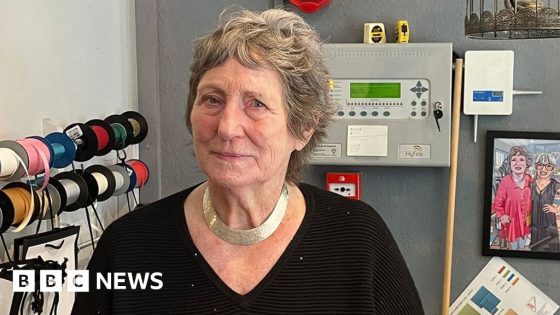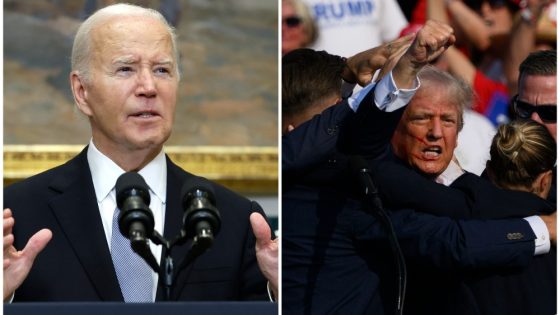A rainy, and in some places thunderous, August primary Tuesday produced few surprises but set the stage for some marquee races on Nov. 5, when the nation’s eyes will already be on Michigan as a key battleground state in the presidential election.
In fact, primary ballots were still being counted Wednesday as contenders for the White House headed to Michigan for events that aimed to energize their general election campaigns.

Republican vice presidential nominee and U.S. Sen. JD Vance of Ohio is scheduled to visit Macomb County Wednesday on morning to speak at the Shelby Township Police Department.
Vice President Kamala Harris, the Democratic nominee for president, joined by her newly named running mate, Minnesota Gov. Tim Walz, is holding an event Wednesday night at Detroit Metropolitan Airport, and another Michigan campaign event Thursday.
Here are three takeaways from Tuesday’s primary:
Big-time U.S. Senate and House races finalized
Michigan is expected to be important for November, not just in determining who will next occupy the White House after President Joe Biden, but in deciding which party controls the U.S. Senate, where Democrats now enjoy a slim majority, and the U.S. House, where Republicans are narrowly in charge.
Tuesday’s results, while largely expected, point to well-funded and highly competitive Michigan contests impacting both chambers.
To fill the U.S. Senate seat being vacated by U.S. Sen. Debbie Stabenow, D-Lansing, U.S. Rep. Elissa Slotkin, D-Holly, will face former U.S. Rep. Mike Rogers, R-Brighton, in a race the Cook Political Report has rated a “toss-up.”
That contest will be the main congressional event in Michigan Aug. 5, but there will also be some enticing battles for the U.S. House on the undercard.
Those include a race for the open seat being vacated by U.S. Rep. Dan Kildee-D-Flint Township in the 8th Congressional District, where former Lansing anchorman and prosecutor Paul Junge, a Grand Blanc Republican, will face state Sen. Kristen McDonald Rivet of Bay City, in another matchup pundits say is too close to call.
Michigan incumbents could also face strong challenges after Tuesday’s results.
In the 10th Congressional District, U.S. Rep. John James, R-Shelby Township, will face Democrat and former Macomb County judge and prosecutor Carl Marlinga. It will be a rematch of what was one of the tightest U.S. House races in the nation in 2022.
In the 3rd Congressional District, U.S. Rep. Hillary Scholten, D-Grand Rapids, will face Republican challenger Paul Hudson, an East Grand Rapids attorney. That contest is also expected to be competitive. Currently, the Cook Political Report ranks it as likely Democratic, giving the edge to Scholten.
Though not impacted by Tuesday’s primary, since both November candidates went unchallenged, one other Michigan congressional race is rated a toss-up in November and is expected to draw significant resources from both parties: The 7th Congressional District, where former state Sen. Tom Barrett, R-Charlotte, will meet former state Sen. Curtis Hertel, D-East Lansing.
Not all state House incumbents survived
There was a notable defeat Tuesday in the 107th District, where state Rep. Neil Friske, R-Charlevoix, was defeated by Republican challenger Parker Fairbairn.
Friske, who was seeking a second term, made headlines in June when he was arrested by Lansing police in an early-morning incident involving a firearm and an alleged sexual assault.
Friske, considered one of the most conservative state House members, was released from jail without charges as Ingham County prosecutors say they continue to investigate what happened. He has maintained his innocence but it appears the incident may have been a factor in his ouster from the Legislature.
With 99% of the vote tallied, Fairbarn, a small business owner, led with 63% of the vote, compared to 37% for Friske.
Election went smoothly; turnout not record-setting
Scattered power outages amid stormy skies were the main glitches affecting Tuesday’s voting.
Precincts that were temporarily without electricity resulted in relocated polling places in Royal Oak, in Oakland County; Warren, in Macomb County; Three Rivers, in St. Joseph County; Grand Rapids, in Kent County; Clinton Township, in Macomb County; Brady Township, in Kalamazoo County; and the City of Portage, in Kalamazoo County, according to Secretary of State Jocelyn Benson’s office.
But Benson said officials quickly arranged for alternate sites and posted signs and nobody lost their chance to vote as a result.
Final turnout numbers have still not been calculated but the inclement weather may have contributed to voting numbers that were below levels seen in some recent primaries.
Benson estimated that about 2 million Michiganders voted in the primary, with more people voting absentee than in person.
Since 2018, between 2.1 million and 2.5 million voters typically participate in Michigan’s primary elections.
Contact Paul Egan: 517-372-8660 or [email protected]. Follow him on X, @paulegan4.
This article originally appeared on Detroit Free Press: 3 takeaways from Michigan’s wet and stormy Tuesday primary vote
Source Agencies


